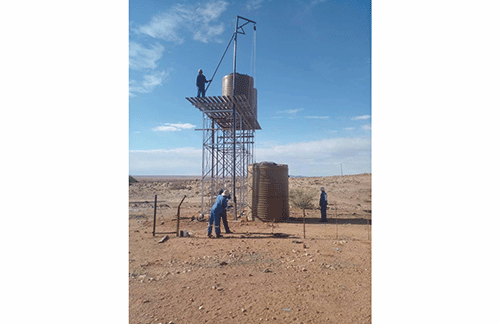Namibia has acceded to the Water Convention with the aim to strengthen her capacity and add additional tools in catalysing change towards the water and peace nexus.
Transboundary water cooperation is one of the mechanisms aimed at ensuring that water is not a source of conflict, but a symbol of partnership, joint progress and economic development.
Therefore, Namibia expressed interest to be part of the water convention during the ninth meeting of the Parties to the Water Convention held in September 2021 in Geneva, Switzerland.
The move was announced by agriculture deputy minister Anna Shiweda at the opening session of the national stakeholders’ workshop on Namibia’s accession process to the convention on the protection and use of transboundary watercourses and international lakes.
Namibia sees a great opportunity to be part of this global legal framework because all the perennial rivers are transboundary and shared with neighbouring countries, she enthused.
“In our view, therefore, being part of this convention will add value to the implementation of the existing bilateral and multilateral agreements, as well as protocols and conventions aimed at promoting the joint management and sustainable development of internationally-shared waters,” she said.
In addition, Shiweda believes that parties to the convention stand to benefit from Namibia’s long-standing experience in transboundary water cooperation.
In today’s interconnected world, water availability is directly related to peace and security. Worldwide, pressure on freshwater is rising with climate change, pollution and a growing demand for water further contributing to water insecurity.
“Namibia also envisions to gain new insights for enhanced transboundary cooperation, conflict prevention and regional stability. We, therefore, call on our national, regional and global stakeholders for their support in making Namibia’s accession to the water convention a reality,” she pleaded.
Namibia’s connection to the convention is more important as water diplomacy is increasingly becoming a cornerstone for transboundary water management, not only to avoid harm to others, but also to benefit each other.
Shiweda stressed that through water diplomacy, riparian states can realise the benefits of cooperating on the management of water resources through joint planning, development and policy harmonisation.
– anakale@nepc.com.na


